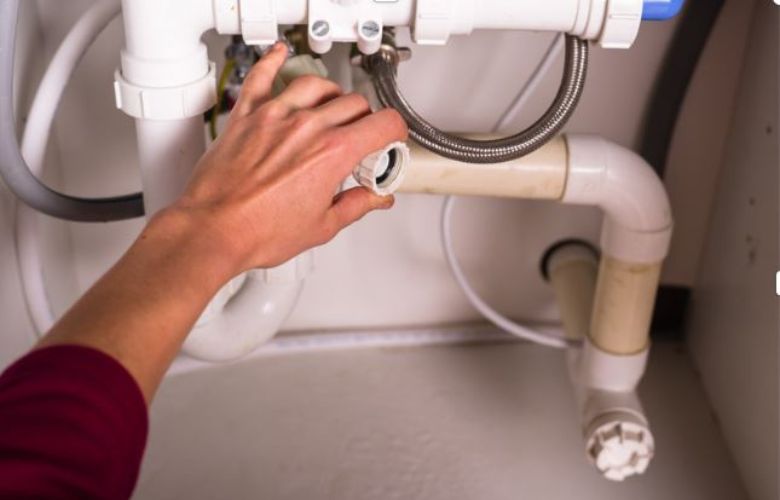Plumbing is an essential aspect of maintaining a functional and comfortable home environment. In Australia, like in many other countries, plumbing systems play a crucial role in ensuring the proper flow of water and waste, which directly impacts hygiene, health, and overall quality of life. While do-it-yourself (DIY) projects are increasingly popular, there are certain areas where expertise and professional training are not just recommended, but legally required. This article delves into the reasons why individuals should avoid DIY plumbing in Australia, the potential implications of unauthorized plumbing work, and the types of plumbing jobs that homeowners can safely undertake.
The Complexities of Plumbing Systems
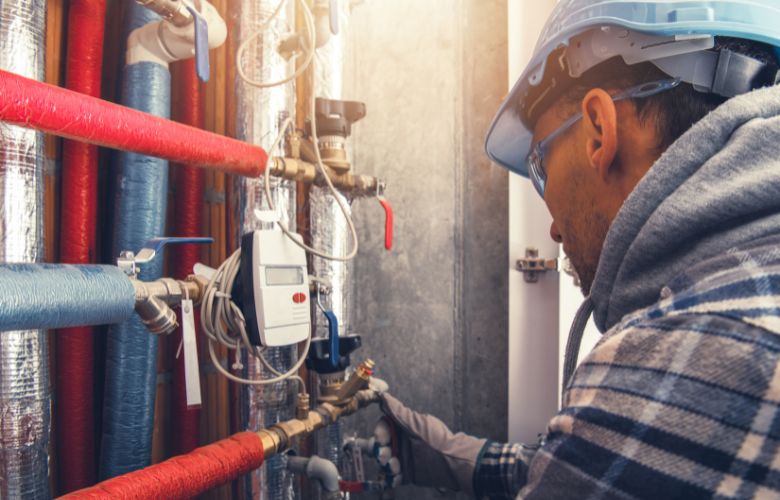
Plumbing systems are intricate networks of pipes, fixtures, and appliances that require a comprehensive understanding of hydraulic principles, local building codes, and safety regulations. Attempting to repair or modify these systems without proper knowledge can result in serious consequences, including leaks, contamination of drinking water, and damage to property. DIY plumbing enthusiasts might lack the training and experience needed to diagnose complex issues and implement effective solutions.
Legal and Regulatory Framework
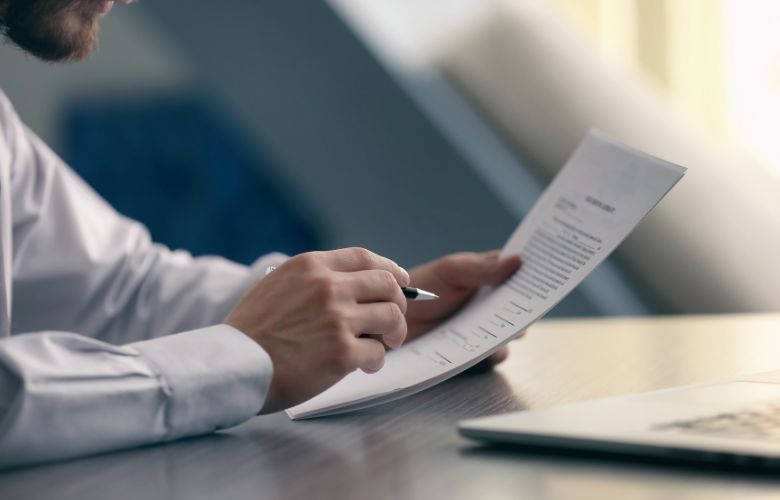
In Australia, plumbing work is regulated by state and territory authorities, and plumbing practitioners are required to hold relevant licenses and certifications. The primary objective of these regulations is to ensure the safety of both the occupants and the environment. Engaging in plumbing work without the necessary credentials is not only risky but also illegal. The Plumbing Code of Australia (PCA) sets out standards for plumbing and drainage systems to prevent health hazards and maintain a high standard of public health.
Implications of Unauthorized Plumbing Work
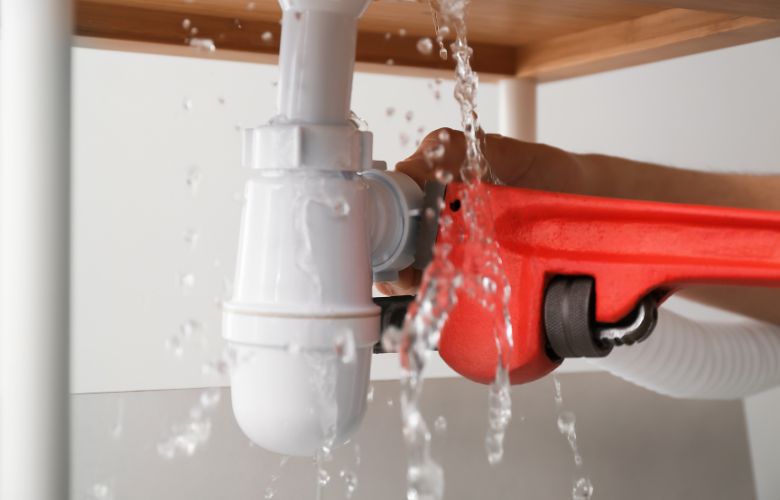
Health and Safety Concerns: Plumbing systems are intricately linked to public health. Incorrectly installed or repaired plumbing can lead to water contamination, bacterial growth, and the spread of diseases. For instance, cross-connections between drinking water and sewage systems can have severe health consequences. Professionals are trained to prevent such hazards.
Property Damage: Poorly executed plumbing work can cause leaks, floods, and structural damage to homes. The costs associated with fixing these issues can quickly escalate, potentially exceeding the amount that would have been spent on professional plumbing services in the first place.
Voided Insurance: Many insurance policies require that plumbing work be carried out by licensed professionals. If a DIY plumbing job leads to damage or issues, insurance claims may be denied, leaving homeowners to bear the full financial burden.
Legal Consequences: Engaging in unlicensed plumbing work can result in legal penalties, fines, and even criminal charges. Authorities take unauthorized plumbing seriously due to the potential risks it poses to public health and safety.
DIY Plumbing Limits: What Can Homeowners Do?
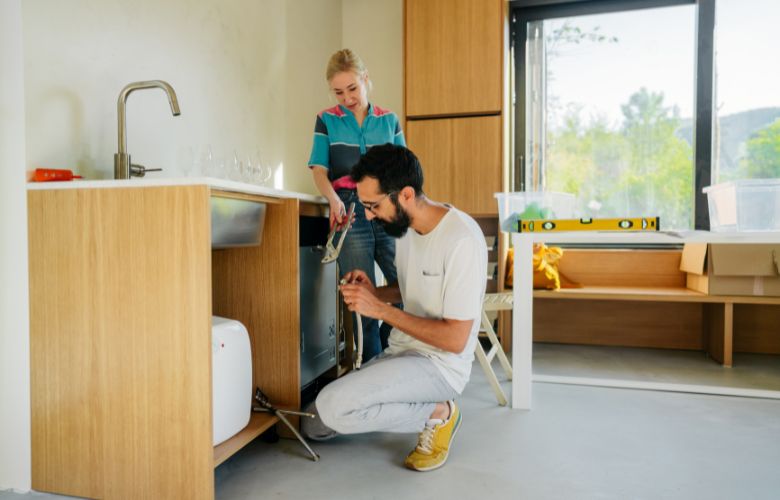 When it comes to plumbing, homeowners often find themselves facing a dilemma: whether to roll up their sleeves and attempt a do-it-yourself (DIY) fix or to call in a professional plumber. While complex plumbing tasks are best left to the experts, there are certain jobs that individuals with moderate skill levels can confidently undertake. However, it’s important to approach these tasks with a solid understanding of plumbing codes and regulations, as well as a realistic assessment of personal abilities. Let’s explore these DIY plumbing tasks in more detail:
Replacing Faucets and Showerheads: Refreshing Your Fixtures
Over time, faucets and showerheads can become worn, corroded, or simply outdated. Thankfully, replacing them is a relatively straightforward task that many homeowners can handle without professional assistance. This process not only improves the aesthetics of your bathroom or kitchen but can also enhance water efficiency.
Steps:
When it comes to plumbing, homeowners often find themselves facing a dilemma: whether to roll up their sleeves and attempt a do-it-yourself (DIY) fix or to call in a professional plumber. While complex plumbing tasks are best left to the experts, there are certain jobs that individuals with moderate skill levels can confidently undertake. However, it’s important to approach these tasks with a solid understanding of plumbing codes and regulations, as well as a realistic assessment of personal abilities. Let’s explore these DIY plumbing tasks in more detail:
Replacing Faucets and Showerheads: Refreshing Your Fixtures
Over time, faucets and showerheads can become worn, corroded, or simply outdated. Thankfully, replacing them is a relatively straightforward task that many homeowners can handle without professional assistance. This process not only improves the aesthetics of your bathroom or kitchen but can also enhance water efficiency.
Steps:
- Gather Supplies: Ensure you have the new faucet or showerhead, along with any necessary tools such as wrenches, pliers, and Teflon tape.
- Turn Off Water Supply: Shut off the water supply to the fixture you’re working on. This is usually done by closing the isolation valves located under the sink or behind the shower.
- Remove Old Fixture: Carefully remove the old faucet or showerhead by loosening the connections using the appropriate tools.
- Install New Fixture: Follow the manufacturer’s instructions to install the new fixture. Use Teflon tape on threaded connections to prevent leaks.
- Turn On Water Supply: Once everything is securely connected, turn the water supply back on and check for any leaks. Make sure to run the water and ensure proper functionality.
Unclogging Drains: Clearing Minor Blockages
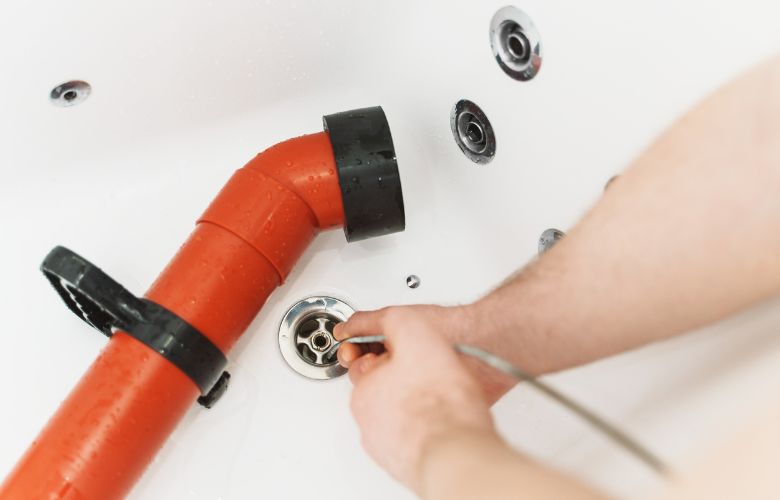
Blocked drains are a common household nuisance that can disrupt daily activities. While major blockages or repeated issues may require professional attention, minor clogs in sinks, showers, and toilets can often be resolved using basic tools and techniques.
Steps:
- Plunger: For sinks and toilets, start with a plunger. Create a seal around the drain opening and use a firm, steady motion to plunge several times. This can dislodge the blockage.
- Drain Snake: A drain snake, or auger, can be inserted into the drain to break up and remove clogs. Follow the instructions on the tool and proceed carefully to avoid damaging pipes.
- Eco-Friendly Drain Cleaner: If you prefer a chemical solution, opt for eco-friendly drain cleaners. These products are less harsh on pipes and the environment.
Installing Toilet Seats: A Simple Upgrade
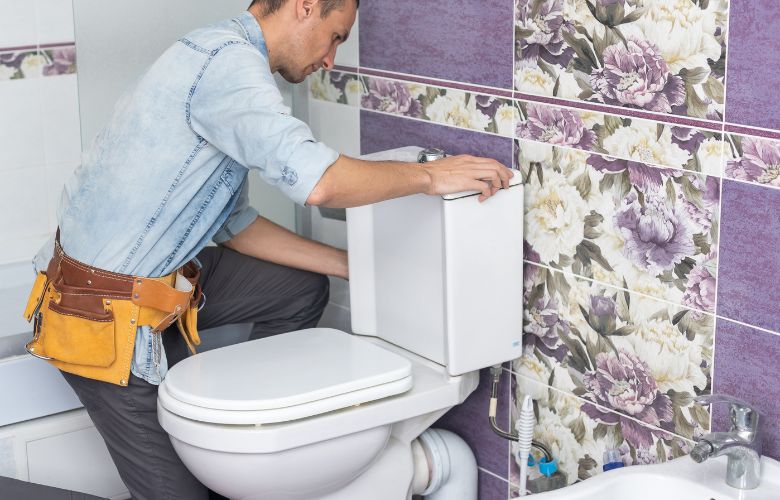
Installing a new toilet seat is a task that requires minimal technical skill and can be completed in just a few minutes. This DIY project is an excellent way to refresh the appearance of your bathroom.
Steps:
- Remove Old Seat: Open the seat and lid, then locate and remove the nuts securing the seat to the toilet bowl using a wrench or pliers.
- Position New Seat: Align the new seat over the holes on the toilet bowl and insert the bolts through the holes.
- Attach Nuts: From below the toilet bowl, attach the nuts onto the bolts and tighten them by hand, followed by a few turns with a wrench.
- Test Stability: Close the seat and lid and test their stability. Make sure the seat doesn’t wobble and is firmly secured.
Changing Washers and Seals: A Fix for Dripping Faucets
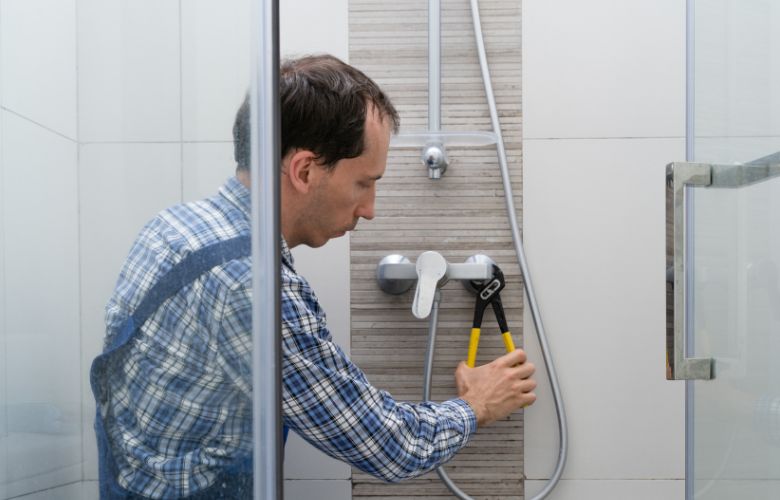
Dripping faucets not only waste water but can also lead to increased water bills. In many cases, the issue can be resolved by replacing worn-out washers or seals within the faucet.
Steps:
- Turn Off Water: Before you begin, turn off the water supply to the affected faucet.
- Dismantle Faucet: Carefully dismantle the faucet, taking note of the order and orientation of components.
- Replace Washer or Seal: Locate the washer or seal causing the leak and replace it with a matching part from a hardware store.
- Reassemble Faucet: Put the faucet back together in the reverse order. Ensure all components are properly aligned and tightened.
- Turn On Water Supply: Once reassembled, turn the water supply back on and check for leaks. Adjust components if necessary.
DIY plumbing projects can be rewarding and cost-effective, but they should be approached with caution and a clear understanding of personal limitations. While tasks like replacing faucets, unclogging drains, installing toilet seats, and changing washers are well within the realm of homeowner capabilities, it’s vital to recognize when a job exceeds your expertise. For more complex plumbing issues involving pipes, sewer lines, or major renovations, consulting a licensed plumber is the safest choice to ensure the integrity of your plumbing system and the overall well-being of your home.
When to Call a Professional Plumber
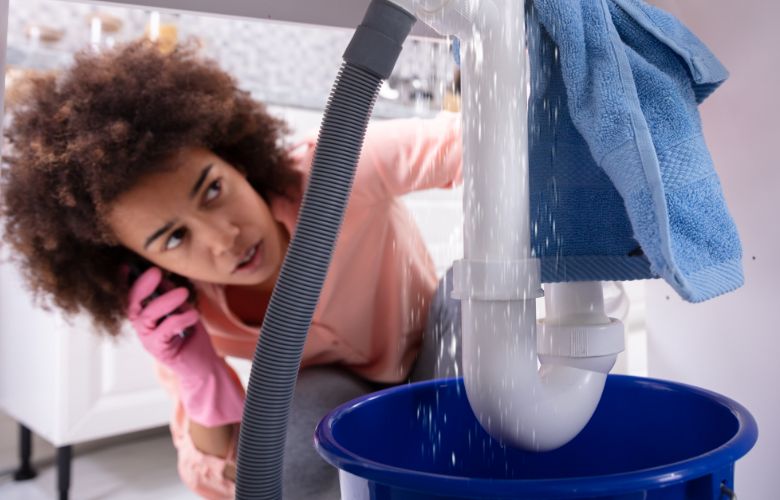
While certain DIY plumbing tasks can be managed by homeowners, there are critical situations that demand the expertise of licensed professional plumbers. These complex plumbing jobs not only require specialized knowledge but also involve potential risks that can compromise the safety of your home, health, and financial well-being. Here’s an in-depth look at plumbing scenarios where professional intervention is a must:
Pipe Installation and Repair: Navigating the Plumbing Maze
Reason for Professional Involvement: Any task related to the installation, relocation, or repair of pipes should be entrusted to skilled plumbers. Pipes form the backbone of your plumbing system, carrying water in and waste out. Incorrectly installed or repaired pipes can lead to disastrous consequences, including leaks, bursts, and extensive water damage to your property.
Expertise and Skills Required: Professional plumbers possess a deep understanding of various pipe materials, their compatibility with different systems, and the intricacies of pipe connections. They adhere to plumbing codes and standards to ensure secure installations that minimize the risk of leaks and future maintenance issues.
Sewer Line Issues: Dealing with Delicate and Messy Matters
Reason for Professional Involvement: Sewer line problems are a serious concern due to their potential impact on public health, the environment, and property. These issues can be hazardous and unpleasant to handle without the appropriate knowledge, equipment, and protective measures.
Expertise and Skills Required: Licensed plumbers are equipped with advanced tools such as sewer cameras to inspect underground lines, pinpoint issues, and recommend appropriate solutions. They understand how to safely address blockages, leaks, and collapses, ensuring the integrity of your sewer system while preventing contamination and damage.
Water Heater Installation and Repair: Ensuring Safety and Efficiency
Reason for Professional Involvement: Water heaters involve both electrical and gas components, making their installation and repair potentially dangerous for individuals without the right training. Incorrectly executed work can result in gas leaks, electrical hazards, and even explosions.
Expertise and Skills Required: Professional plumbers are well-versed in the complex requirements of water heater installation, including ensuring proper ventilation, electrical connections, and gas line hookups. They possess the expertise to troubleshoot issues, perform repairs, and carry out routine maintenance tasks while prioritizing safety.
Major Bathroom or Kitchen Renovations: Navigating Building Codes
Reason for Professional Involvement: Undertaking large-scale plumbing projects associated with home renovations requires more than just plumbing knowledge—it necessitates compliance with local building codes and regulations. Failure to adhere to these standards can result in legal and safety complications.
Expertise and Skills Required: Professional plumbers collaborate with architects, contractors, and homeowners to design and implement plumbing systems that align with the renovation plans. They ensure that all installations, whether involving new fixtures, rerouting pipes, or modifying drainage systems, meet legal requirements, safeguarding the structural integrity of your home.
In Australia, plumbing is a vital component of a safe and comfortable living environment. While DIY projects can be fulfilling, attempting plumbing tasks without the necessary training and licensing can lead to significant risks, from property damage to legal consequences. Homeowners should be aware of the legal and health implications of unauthorized plumbing work and understand the limits of their own expertise. For any plumbing work beyond basic maintenance tasks, seeking the assistance of a licensed professional is not just a smart choice but a responsible one, ensuring the safety of your home, your loved ones, and the broader community.

